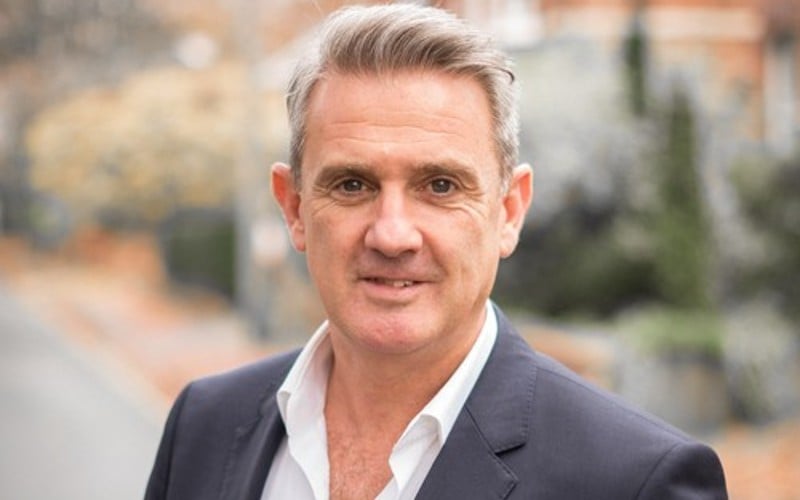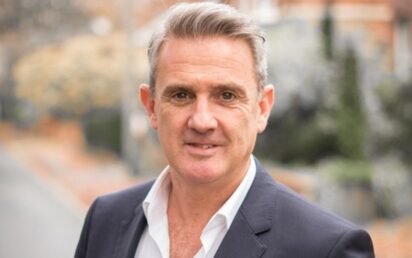Tony Hughes is on a mission to turn the world of broadband in its head – and he doesn’t care who knows.
He’s the CEO of 4th Utility and is on a mission to install its fibre network into new build apartment blocks.
Hughes is also angry. “The UK is 45th in the world for broadband speed,” he told TechBlast. “It’s staggeringly shocking how bad we are at broadband in the UK.
“When I moved house, from moving in, to getting live on the internet, took six weeks! Everybody needs access to the internet, so getting connected is standard stuff. To wait weeks for an engineer to visit to turn on your internet for me was just an anathema.
“They then tie you in for 18 months – two years, the service is rubbish. They’ll put lots of caveats in the contract in terms of making it very difficult even though the service is poor.
“That’s why I’ve said, as a company, we either deliver high quality or people can leave. We will never, as a company, hide behind contracts. What we deliver is high quality. And if you deliver high quality, people don’t leave you.”
4th Utility is a challenger brand but Hughes is on a mission to disrupt the world of broadband.
In August 2020 the company raised £25m from DIF Capital, achieved revenue of £1.3m in the 12 months to March 2021, and is currently aiming to achieve a revenue of £3.6m in the current financial year. The aim is profitability – but not at any price.
“We want to be profitable but it can’t be at the expense of delivering a high quality solution to your customer base,” he said. “You’ve got to have a balancing act. And I think you need an investor that understands that Rome wasn’t built in a day and with DIF, we’ve got an infrastructure partner that understands it may take a bit longer.
“But having that patience is a positive thing. We’re aiming for breakeven at some point, sort of mid-next year, mid to the back-end of next year, and we’re on track for that. It’s looking very positive.
“But ultimately, from a value creation perspective, we’ve got to build. And if you’re building and you’re building very fast, and you’re bringing in new opportunities into the business, it takes time for you to do that.
“The great thing about the company and the business is recurring revenues and recurring margin. Once you build it, as you build it, those revenues and margins, just grow month-on-month, and we just see constant growth. As we go forward, the more we add into the pot, the faster we grow.”
4th Utility recruited former England and Sales Sharks rugby legend Mark Cueto as a sales director but if events had turned out differently, it could have been Hughes who was the household name in the world of sport.
As a teenager he was on the books of Manchester City, although his efforts to be a footballer weren’t matched by his efforts at work.
“I wasn’t willing to put the effort into study,” he admitted. “I was willing to put the effort into other things, you know, you’re aged 17 and 18, you find other things to do in life, which are a little bit more interesting, a little bit more exciting. They’re probably a lot of the reasons why I didn’t do so well.
“I was at City until I was 16 and I played with some really good footballers. The reality of it was I never good enough and I was never going to be good enough. I had a great time while I was doing it and played with Paul Lake and Andy Hinchcliffe.
“I actually thought I was a good footballer for a while. Then you see people who are really good footballers and you realise that you’re not at that level. I was a realist. I was relatively relaxed about that. I wasn’t overly surprised, and you just move on.”
Hughes got a job in a call centre for British Gas, and was asked by his boss why he was answering 200 calls a day, while everyone else was only answering 100.
“A lot of the other people in the call centre would answer a call, be writing things down, spend as much time as they possibly could before they had to answer the next call,” he said. “I had a very different philosophy in terms of doing the work. For me, I was asked to do a task, and if you’re going to do the task you should do it to the best of your abilities.”
He’s taken the same matter-of-fact approach to the rest of his career, which has included spells at Dell and, more recently, Metronet.
He also studied business and finance at Manchester Metropolitan University in the evening for five years.
“All my friends were going out and having a great time, so putting that effort in meant that you really had to focus on what you were doing,” he explained. “If you weren’t going to focus and put that level of drive into it, why even bother?
“Five years of going two nights a week after work 6pm until 9pm was tough. It wasn’t easy and there were plenty of times when you could have thought ‘I don’t want to do this’, but I saw it through. And that was the right thing for me to do.”
It was while he was at the Metronet that the idea for 4th Utility started to form.
“The nature of the UK market was that telecoms into homes was so bad from a service perspective, it was astonishing,” he said. “When I came out of Metronet, I had some time on my hands, which gave me an opportunity to think, then I sat down with four or five other people.
“We then talked about what I thought we could do. When you have a blank sheet of paper, you could say what good looks like. I said ‘what I want to do, is when somebody moves into an apartment, it should be 60 seconds for them to be live on the internet’.”
But Hughes wasn’t finished there. “I said ‘all the contracts need to be 30 days, because if people don’t like the service, they should be able to leave and not be tied in for 18 months-two years. All of the speeds should be synchronous, and we should guarantee the speeds in terms of what we deliver’.”
4th Utility targets apartment blocks over houses. “It’s more cost effective,” he explained. “Complexity wise, it’s pretty straightforward to do. It is a straightforward market that we understand very well. And ultimately, we’re probably one of only two, maybe three organisations that just focus on apartment blocks in the UK, that’s what we do.
“We’d rather be known for doing something really well than spreading ourselves too thin. That’s what our focus is, we’re going to stay with that. It makes a huge amount of sense, we understand it, and we will get more efficient, so it’s a really good marketplace for us.”
Hughes still wants customers to be connected to the internet in 60 seconds. “You choose your apartment, choose your speed, fill in your direct debit or your payment card, and it then asks for your password,” he explained. “Email your password and then you’re live.”
4th Utility currently employs around 50 employees at their office in Hale and Hughes wants to have a 10 per cent market share of the six million apartment blocks in the UK.
“We can see sight today to around 300,000 already, and we’re very active to try and drive to that that 600,000 number,” he said. “That’s our ambition. That’s a five-year view in terms of where we want to go to, that’s the push and we’re a long way on with that plan. We’re a challenger brand, and our big focus is on developing that brand.”


